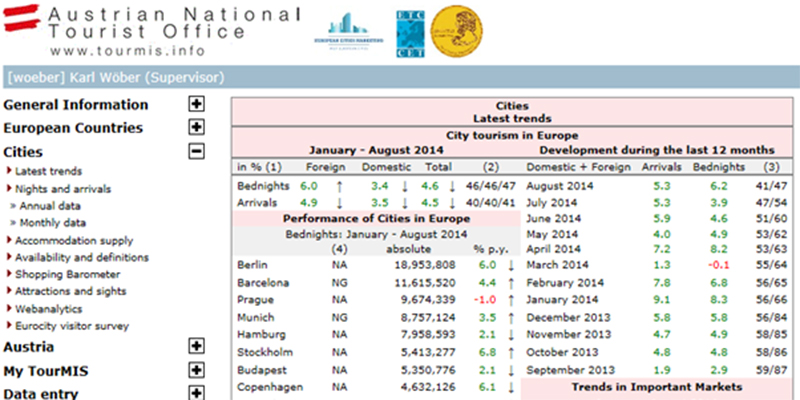Towards a Sustainable Urban Tourism Development in Europe - The Role of Benchmarking and Tourism Management Information Systems
September 08, 2016
Irem Önder, Karl Wöber, and Bozana Zekan from the Department of Tourism and Service Management recently published a paper in the latest issue of the journal Tourism Economics, investigating the role of Benchmarking and Tourism Management Information Systems in sustainable urban development in Europe.
The results of the paper were presented at last year's TourMIS Users' Workshop & International Seminar on Consumer Trends & Tourism, an annual highlight for tourism professionals and academia held at MODUL University Vienna. This year's TourMIS User's Workshop is currently underway at the 12th TourMIS Users' Workshop & International Seminar on Consumer Trends & Tourism, which is being held from September 8th - 9th. This year's theme focuses on ‘Travel Transformation – Are We Ready?’, with an exciting international selection of speakers presenting cutting-edge research.
More on the paper:
Towards a Sustainable Urban Tourism Development in Europe.
The Role of Benchmarking and Tourism Management Information Systems.
A Partial Model of Destination Competitiveness
Abstract
The development of indicators and metrics systems has been identified as being of paramount importance by many tourism boards and international tourism organizations. This article discusses the bottom up, micro-level approach of TourMIS, which is a platform for exchanging tourism statistics among tourism organizations, for collecting measures of sustainable urban tourism development. The authors provide a synthesis of various frameworks for sustainable tourism indicators for sub-national regions and cities, concluding that it is more feasible to analyze existing sustainable tourism indicators than to introduce new measures lacking in direct practical applicability for the organizations. The application of data envelopment analysis (DEA) for benchmarking urban tourism destinations is then demonstrated by assessing measures available in TourMIS. Findings include inefficiency scores that suggest both managerial and political implications. Furthermore, the concept of a virtual reference destination assisting managers and politicians to analyze their destination’s strengths and weaknesses is introduced.
Keywords: Urban tourism development, sustainable tourism indicators, benchmarking, TourMIS, Data Envelopment Analysis, virtual reference destination





